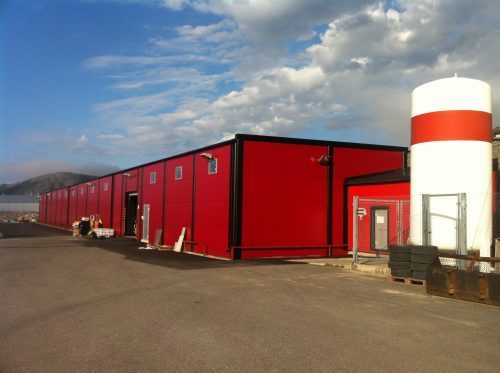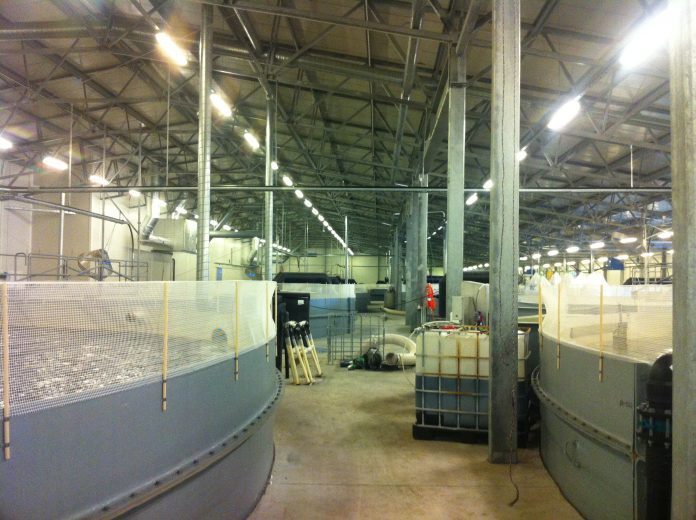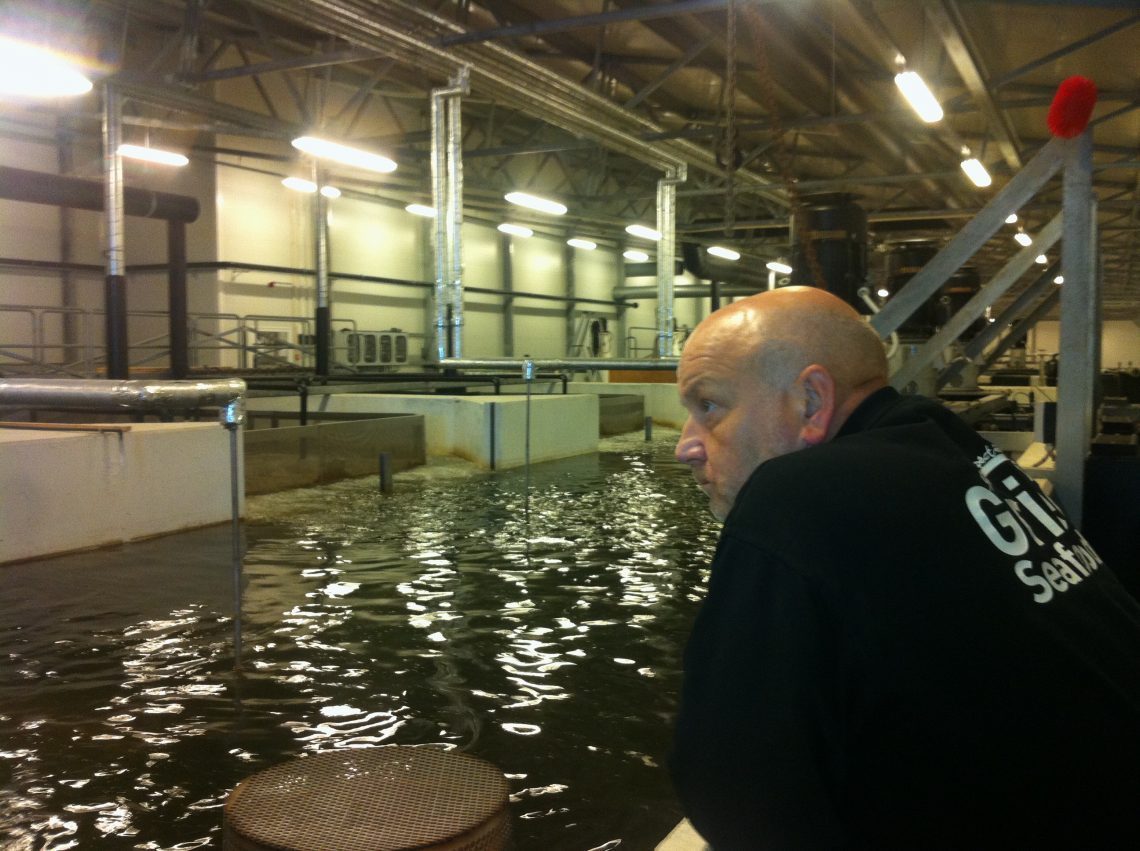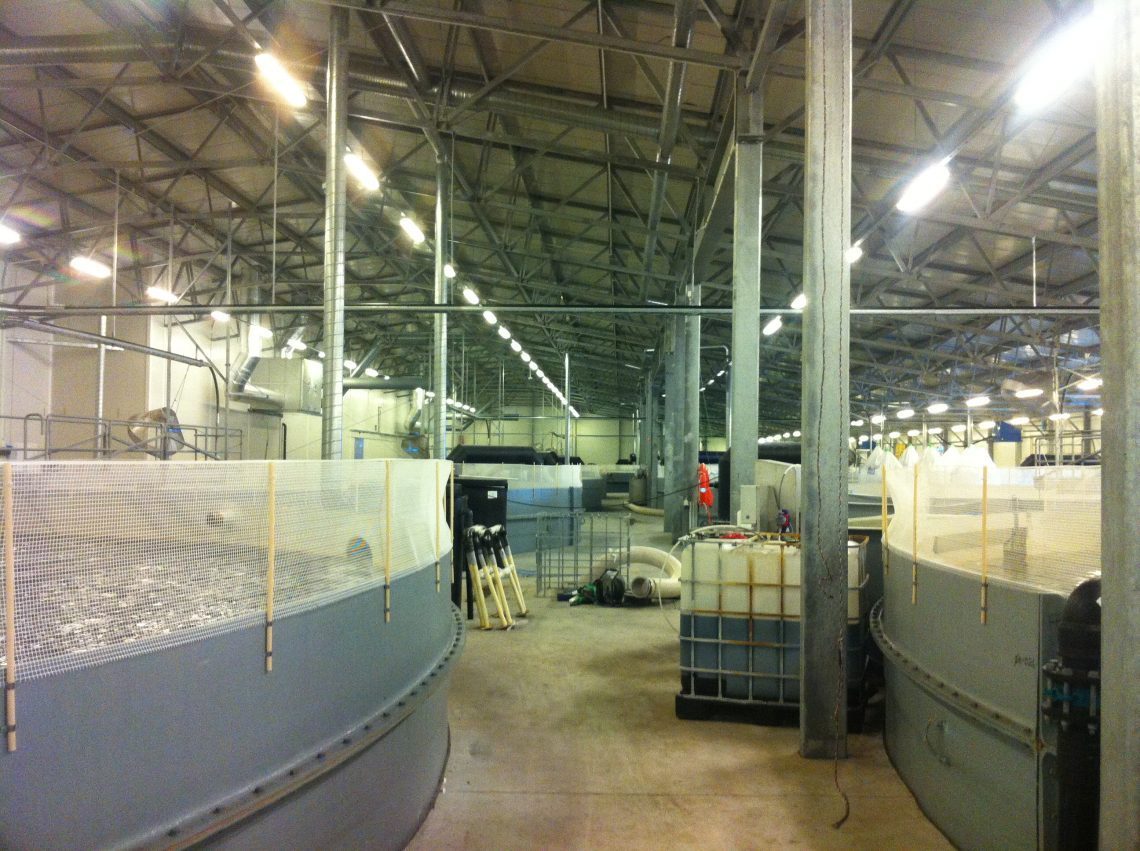The expansion of the Adamselv smolt plant in Lebesby, Norway was to be given the green light to start this week.
Alta-based Jan Opgård AS was ready to start ground work on the site at the end of the month. However, great uncertainty linked to the tax proposal means that the investment is put on hold.
“At Grieg Seafood, we invest heavily in producing larger smolt on land, and reducing the time the fish is in the sea. From the pilot we have carried out in Rogaland, we see that large smolt (so-called post-smolt) both have a lower environmental footprint and improve survival and fish welfare. We are convinced that post-smolt is important for taking the aquaculture industry in a more sustainable direction,” Roger Pedersen, public relations at Grieg Seafood Finnmark, said in a statement.

“With the expansion of our smolt plant at Adamselv, we were to develop this venture here in Finnmark as well. Unfortunately, this has now been put on hold. It benefits neither the environment, the fish nor the local communities in Finnmark, which now have fewer ripple effects than originally planned,” Pedersen said.
Multi-million euro plant
The smolt plant in Adamselv currently has a production capacity of 2,000 tonnes. The plans have been to add an additional production capacity of a total of 6,000 tonnes, which will be used to allow the fish to grow larger on land. The project consists of the following two steps:
- Work on the first construction phase was to start now, with an estimated investment framework of €100 million. The construction phase was scheduled to be completed in 2024. This would have provided approximately 25 new jobs and an additional production capacity of 3,000 tonnes.
- The second construction phase, with an investment framework of €90 million, was then to begin. This would have provided an additional 3,000 tonnes of production capacity and even more jobs locally.
- In total, the estimated investment framework is €190 million.

Grieg’s plant at Adamselv. Photo: Aslak Berge
There is great uncertainty related to the consequences of the current proposal for resource rent tax for aquaculture investments on land, as well as how it will affect Grieg Seafood’s opportunities to invest in its local communities and to develop its business in Norway in general.
The company will help discuss how the industry can pay more tax, but it should be done in a way that does not compromise investments, activity in coastal communities and Norway’s potential as a leading food producer in the sea.
“In the contracts for the contractors, we have made demands to use local subcontractors from Finnmark as much as possible. In the first construction phase, we have estimated that approximately €50 million of the investment sum will go to subcontractors from Troms and Finnmark. It is regrettable that the project is now being postponed,” Pedersen said.
Hits hard The
Alta company Jan Opgård AS was scheduled to start work on preparing the site during October/November. 30 people work in the company, 20 of them work on the construction side.
“This hits us hard. As it looks now, we have little work this winter. We were actually supposed to work on the plot at Adamselv until May/June next year. If we can’t find anything else, we fear layoffs,” general manager Jan-Erik Opgård said.
GSG is a local technology company that has built up around the smolt operations of Lerøy and Grieg Seafood in Lebesby. The company has just invested nine million in building and equipment at Kunes in Lebesby municipality.
“With a new building at Kunes packed with modern equipment, we have set ourselves up to grow further. I have just brought in the employees on the owner’s side, and the plans were for us to expand already next year. The uncertainty is great now, and we are afraid that our future plans will have to be shelved,” Roger Erlandsen, General Manager of GSG, said.











